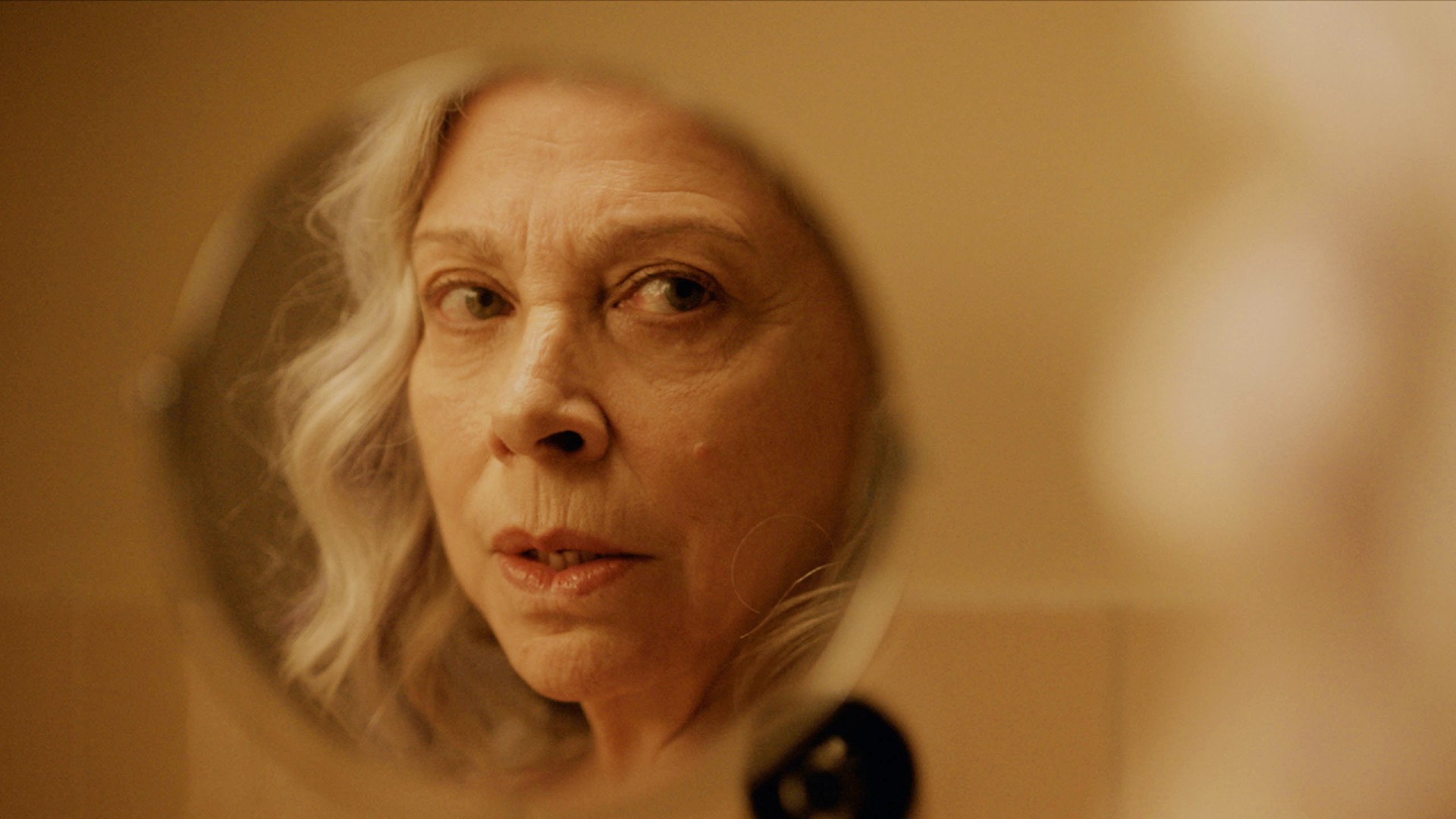From Jesus’s ripped physique to the Song of Solomon, there’s something about Christian iconography that’s just a little bit sexy. And if you haven’t noticed that yet, you certainly will after seeing “Mamacruz,” the second film from Venezuelan writer-director Patricia Ortega (“Yo, Imposible”). In “Mamacruz,” a randy older woman nearly swoons into the arms of a Jesus statue. She zones out during a particularly saucy reading in the middle of mass, her eyes unfocused and breathing shallow. While the film brims with delights, it also takes its subject — one grandmother’s sexual reawakening — incredibly seriously, explicitly linking the protagonist’s libido to her trajectory in life. The result is a sweet — if subdued — ode to mothers and female freedom.
READ MORE: 25 Most Anticipated Films At The Sundance Film Festival
Our titular hero is Cruz (Kiti Mánver, “Cable Girls,” “Women on the Verge of a Nervous Breakdown”), dubbed Mamacruz by her granddaughter. With her daughter, Carlota (Silvia Acosta, “Una Vez Más”), trying to make it as a professional dancer in Vienna, Cruz and her husband (Pepe Quero) are left to look after Carlota’s adolescent daughter, Viki (Inéz Benítez Viñuela) in their Spanish home. A devout Catholic, Cruz makes money by dolling up the statues at her neighborhood church. But when Cruz, who already yearns for more physical affection from her husband, accidentally stumbles over the world of internet porn, and someone puts fliers for sex therapy up at the local church, she begins an unprecedented journey of rediscovery. Along the way, she learns that her relationship with her daughter and her relationship with herself are intricately entwined.
Older women are rarely afforded such complex portraits, but “Mamacruz” still hits the expected coming-of-age beats. Cruz meets some new and vivacious characters who show her that it’s okay to want more than her by-the-numbers life has to offer. As a result, she attracts judgment from her close-minded peers. Therefore, she must figure out how to accept herself in a community that would rather dim her light. None of these secondary characters are particularly well-fleshed out; they each have their role to play.
Cruz’s transformation is as physical as it is emotional. First, she gets her hair done and tries a new nightgown to rekindle her sex life with her husband. When most connected to the women in her sex therapy group, she wears vibrant colors; when passively floating through life, she’s more desaturated. This even applies to the world around her. She spends hours dressing a small Virgin Mary statue in a luscious pink shroud and crown of flowers, only to have her priest condemn it as audacious.
The daughter of a lingerie maker, Cruz once dreamed of using her sewing skills to help women feel beautiful. She finally gets an opportunity to follow that impulse when the women in her sex therapy class ask her to make them more comfortable bras. Costume designer Esther Vaquero (who also costumed Mánver in “El Inconveniente”) has put great care into these pieces, and the film treats them reverently. And while it’s certainly worthwhile to be skeptical of how companies sell women lingerie, makeup, skincare routines, etc., under the guise of “self-care,” in “Mamacruz,” such indulgences feel genuinely positive. Because of both her age and culture, Cruz is expected to fade into asexual obscurity. To defy these prescriptions is to assert her personhood.
Though there’s some farcical sacrilege at play, Cruz’s desire itself is taken seriously. Cinematographer Fran Fernández Pardo (“Where Is Marta?”) makes excellent use of space and focus. The things that turn Cruz on — like her husband’s bare nipple or a Jesus statue’s painted-on beard — seem genuinely sexy through the camera’s up-close, softened gaze. Creative camerawork even spices up the more mundane scenes, as Pardo shows Cruz reflected in mirrors or relegates her to the edge of the frame. An enticing score from Paloma Peñarrubia (“Sangre”) further adds to the mystique. But when the film should be at its most erotic — in a climactic ending scene — it instead descends into montage and metaphor. The effect is aesthetically pleasing, sure, but not on par with the rest of this fearless filmmaking.
Given all these elements — plus electric performances from Mánver and especially Acosta, who gives a moving turn entirely over video call — “Mamacruz” is finely crafted, if not particularly challenging. This film clearly wants to wrestle with taboos, but that revolutionary spirit doesn’t go much further than the basic premise. With such important themes, this film deserves to be a bit more memorable than it ultimately is. [B]
Follow along with all our coverage of the 2023 Sundance Film Festival





